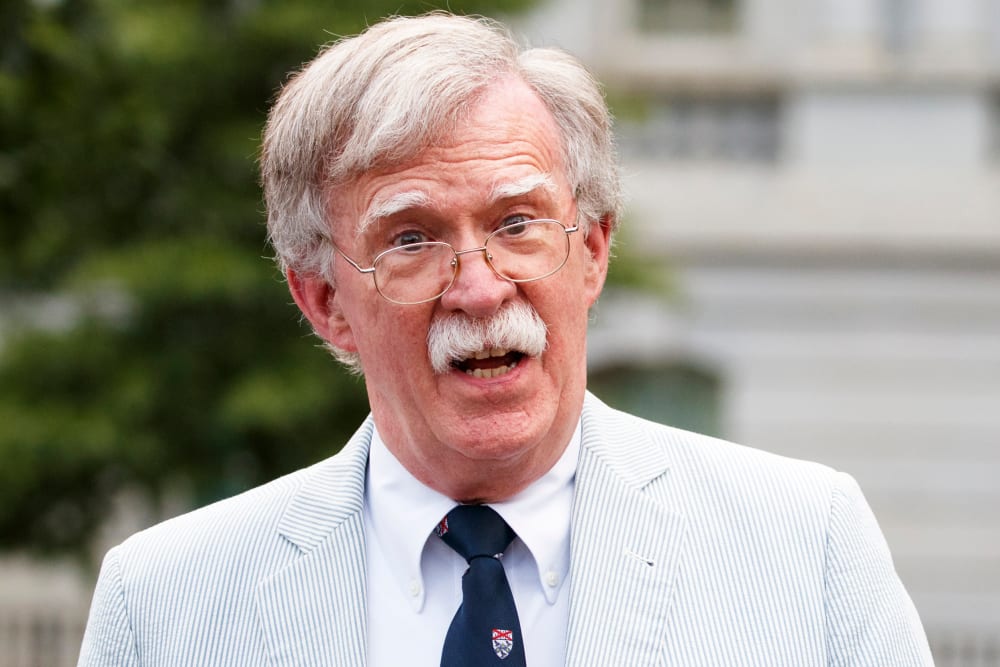The independence of the Department of Justice has long been a hallmark of American democracy. In contrast to despotic and dictatorial regimes around the world, the U.S. insulates from political influence prosecutors who possess the immense power to arrest, charge and potentially imprison.
We know of what we speak: One of us was suspended as a state attorney in Florida by Gov. Ron DeSantis; the other was dismissed as a U.S. attorney by the George W. Bush administration. Many have described our removals as blatantly political acts.
Thursday’s indictment of John Bolton, following the charges brought against former FBI Director James Comey and New York Attorney General Letitia James, highlights the danger of destroying that longstanding guardrail. Situated within a pattern of political prosecution, this latest act fundamentally blurs the line between criminality and constitutionally protected political dissent.
Trump has blatantly and publicly seized control of the Justice Department for his political and personal agendas.
Bolton is an outspoken critic of President Donald Trump who previously served as his national security adviser. They have been entangled in a feud since Bolton left the first Trump administration in 2019. One of us previously explained how the execution of a search warrant of Bolton’s home on Aug. 22 should be a wake-up call for every American: using law enforcement to target political opposition was a new front for authoritarianism.
The president, however, has faced no legal repercussions for his politicization of the justice system, which has emboldened him further. Last month, he ordered Attorney General Pam Bondi to prosecute three of his political enemies: Comey, James, and Sen. Adam Schiff, D-Calif. Erik Siebert, a career prosecutor whom Trump nominated as U.S. attorney for the Eastern District of Virginia, resigned after pressure from the White House to bring charges against James and Comey. (The president claimed he fired Siebert.) Trump installed Lindsey Halligan — one of his former personal attorneys, who had no prosecutorial experience — to make sure the charges were brought.
Bolton’s indictment is not the same prosecutorial theater as the indictments against Comey and James. Halligan personally presented and signed the latter two indictments, which is highly unusual for the U.S. Attorney to do without other prosecutors. Both charging documents are also extremely light on facts: Comey’s contains nothing other than the statutory language, and James’s has only slightly more information.

By contrast, Bolton’s prosecution is being handled by the acting U.S. Attorney in Maryland, Kelly Hayes, who spent 12 years rising through that office’s ranks. Unlike Halligan, Hayes was joined on the indictment by prosecutors from DOJ’s National Security Division. The 18-count indictment charges Bolton with improperly transmitting and retaining classified information, and it includes the detailed factual allegations typical of a federal charging document. Bolton allegedly shared more than a thousand pages of information about his daily activities as the national security advisor with two members of his family between April 2018 and August 2025. “Diary-like entries” sent during this period form the basis for eight counts. The remaining ten counts allege that Bolton kept classified information, including printed versions of the diary entries, in his Maryland home, that were recovered during the August 22 search.
In all three cases, the full picture of what happened (or did not) will emerge as the prosecutions proceed. Like all defendants, Comey, James and Bolton are presumed innocent until proven guilty. But the Bolton indictment, at this initial stage, appears to be more substantive and more likely to succeed than the other two.












